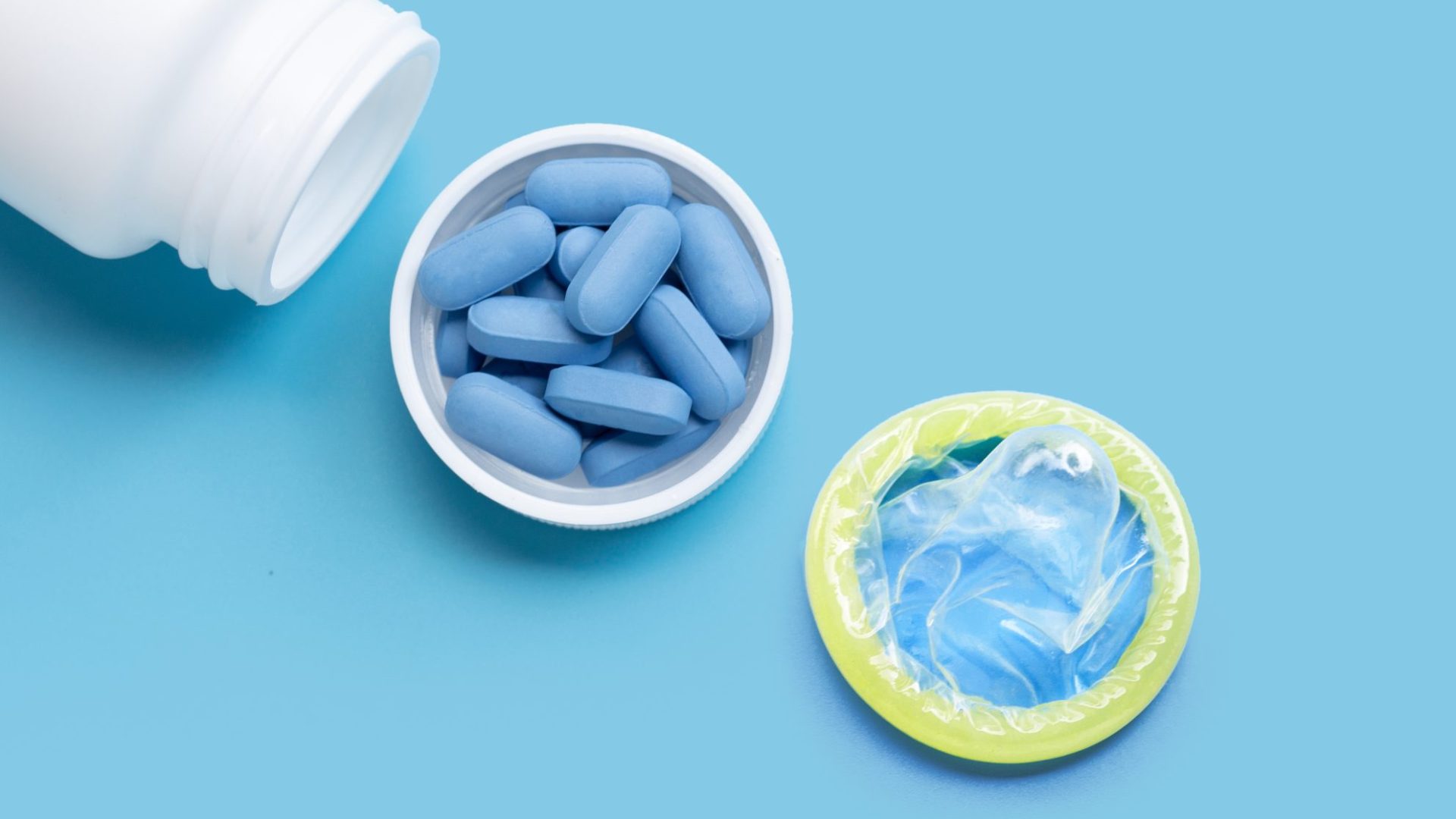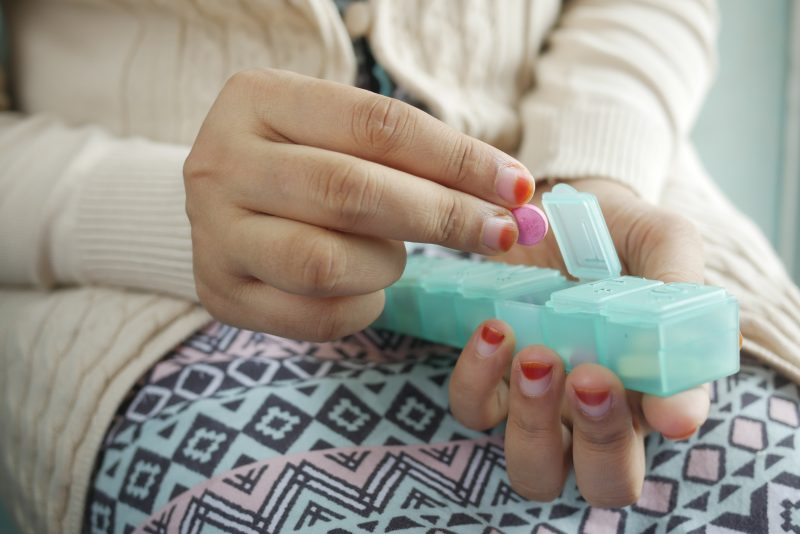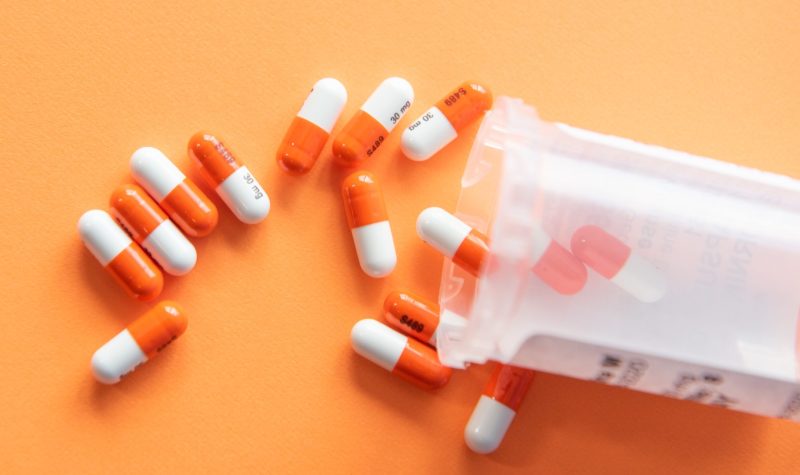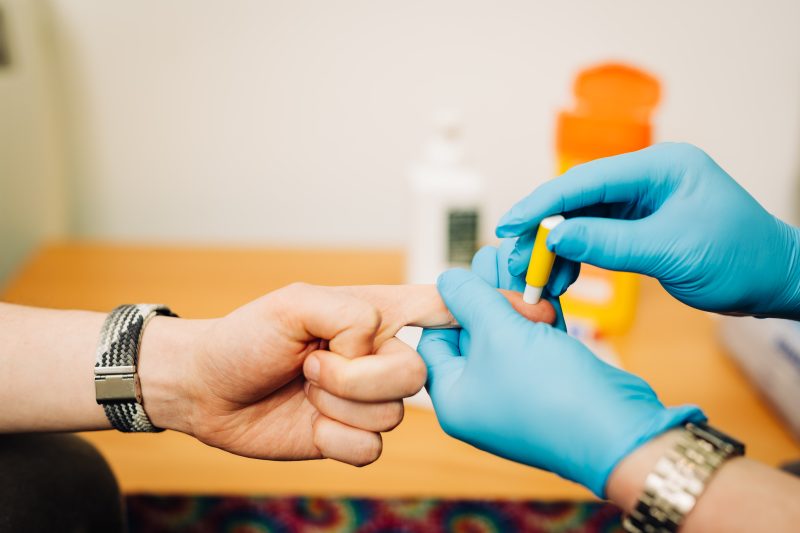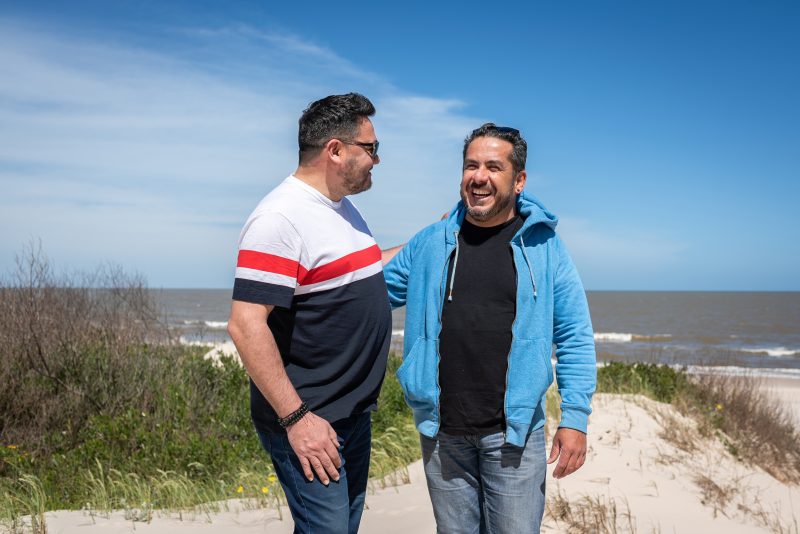There are many ways we can protect ourselves and others from HIV – using condoms during sex and testing regularly are amongst the most effective.
Key things to know
If you don’t have HIV, but are worried about getting HIV through sex, you can prevent it by using condoms or taking PrEP.
If you are living with HIV and are worried about passing it on through sex, you can prevent it by taking your HIV medication as prescribed and having an undetectable viral load.
Most of the time, HIV is transmitted by someone who doesn’t know they have it. Knowing your status means that you can look after your own sexual health as well as your partners’ sexual health.
Read more about HIV testing, including the reasons to get tested or get in touch for advice and support.
Get in touch
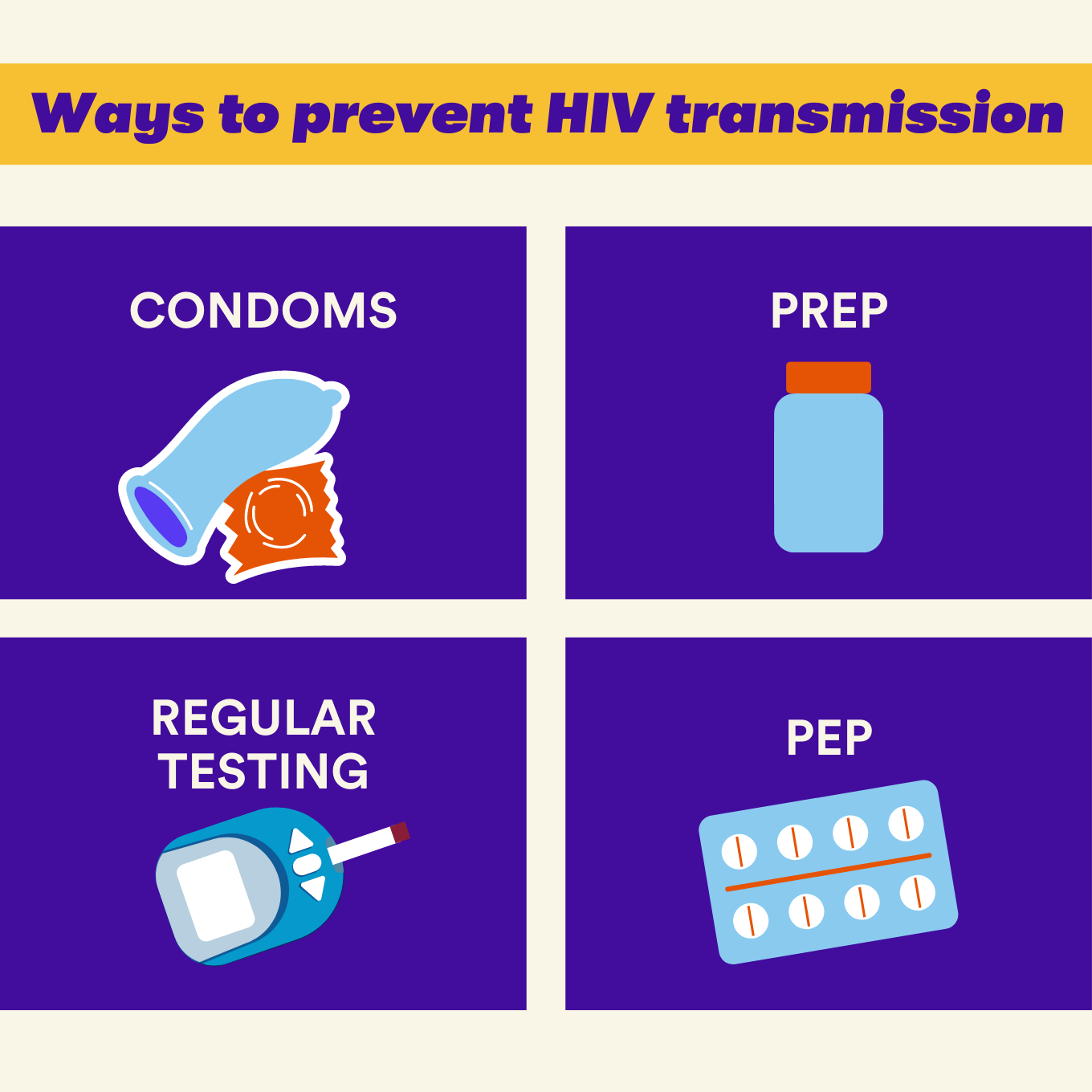
Ways to prevent HIV transmission
When having sex
Using a condom during sex is one of the most effective and easiest ways to prevent the transmission of HIV and other STIs.
- There are different types of condoms, including external ones used on the penis or a sex toy, and internal ones used inside the vagina/internal genitals.
- It is important to choose the right condom type and size for you so it doesn’t slip or break during sex.
- Lube can make it easier to put on the condom and prevent it from breaking.
PrEP is a drug that can be taken before sex to reduce your chances of getting HIV.
If you have HIV
You can prevent HIV transmission to others by taking your HIV medication as prescribed and having an undetectable viral load.
- Taking HIV medication can reduce the amount of HIV in your body so it is undetectable.
- Once the virus is undetectable in your blood, HIV cannot be transmitted during sex. This is called ‘Undetectable = Untransmittable’ (U=U).
- Only your doctor can confirm that you have U=U and that it is safe to have unprotected sex.
- You should continue taking HIV treatment as prescribed even when you have an undetectable viral load, as treatment is needed to maintain it.
If you inject drugs
Never share needles, syringes and other injecting equipment like spoons or swabs, with others, as this exposes you to HIV and other viruses found in the blood like hepatitis C.
Find needle exchange services near you using Scottish Needle Exchange service finder.
If you are pregnant
Starting HIV treatment and staying on it dramatically reduces the chance of passing HIV to your baby during pregnancy, birth and breast/chestfeeding.
If you are pregnant and are worried about the risk of HIV transmission to your baby, you can find more information in the pregnancy and HIV section.
What if?
If the condom has slipped or ripped during sex, you might have been exposed to HIV and other STIs. If this has happened to you, you can access PEP.
PEP is a treatment that can be taken after you have been exposed to HIV to stop you from getting it. It must be taken within 72 hours, but ideally started as soon as possible after the exposure. You can also get in touch with us for advice and support.
If you didn’t use a condom while having sex with someone who has HIV, there is a chance that you might have it too. If you had sex in the last few days, you can take PEP.
If you think you’ve been exposed to HIV, you should get tested. Check out our information on testing for HIV and testing windows. You can also use our service finder to find HIV testing near you or get in touch with us for advice and support.
Just remember, even if you have HIV, it is not the end – treatments for HIV are very effective and mean that you can live a long and healthy life.
If the person living with HIV takes HIV treatment and has an undetectable viral load, they can’t pass HIV to you through sex.
If you are unsure whether they have undetectable viral load and don’t want to ask, you can always use a condom to protect yourself from HIV and other STIs. PrEP is also an effective way to protect yourself from HIV if you find using condoms difficult.
Looking for support?
If you are living with HIV and need support understanding a new diagnosis, treatment or navigating life with HIV, we are here to help. Get in touch with us by filling out our contact form.

